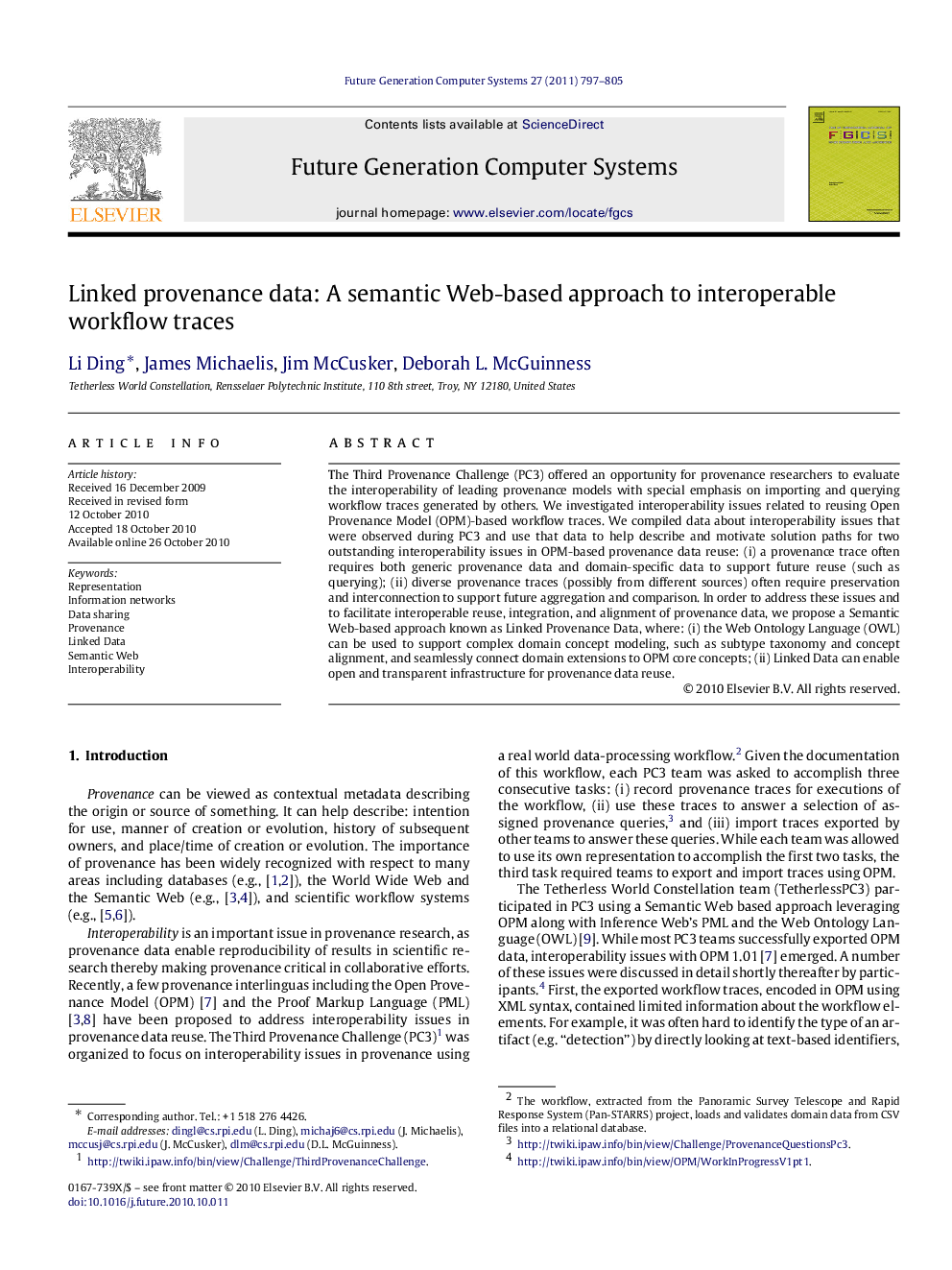| کد مقاله | کد نشریه | سال انتشار | مقاله انگلیسی | نسخه تمام متن |
|---|---|---|---|---|
| 426196 | 686009 | 2011 | 9 صفحه PDF | دانلود رایگان |

The Third Provenance Challenge (PC3) offered an opportunity for provenance researchers to evaluate the interoperability of leading provenance models with special emphasis on importing and querying workflow traces generated by others. We investigated interoperability issues related to reusing Open Provenance Model (OPM)-based workflow traces. We compiled data about interoperability issues that were observed during PC3 and use that data to help describe and motivate solution paths for two outstanding interoperability issues in OPM-based provenance data reuse: (i) a provenance trace often requires both generic provenance data and domain-specific data to support future reuse (such as querying); (ii) diverse provenance traces (possibly from different sources) often require preservation and interconnection to support future aggregation and comparison. In order to address these issues and to facilitate interoperable reuse, integration, and alignment of provenance data, we propose a Semantic Web-based approach known as Linked Provenance Data, where: (i) the Web Ontology Language (OWL) can be used to support complex domain concept modeling, such as subtype taxonomy and concept alignment, and seamlessly connect domain extensions to OPM core concepts; (ii) Linked Data can enable open and transparent infrastructure for provenance data reuse.
Research highlights
► Quantitative analysis documents interoperability issues related to OPM 1.01 in PC3.
► OWL encoding supports rich and interoperable domain-specific OPM ontology extensions.
► Linked Data Provenance enables open and transparent provenance Web infrastructure
Journal: Future Generation Computer Systems - Volume 27, Issue 6, June 2011, Pages 797–805